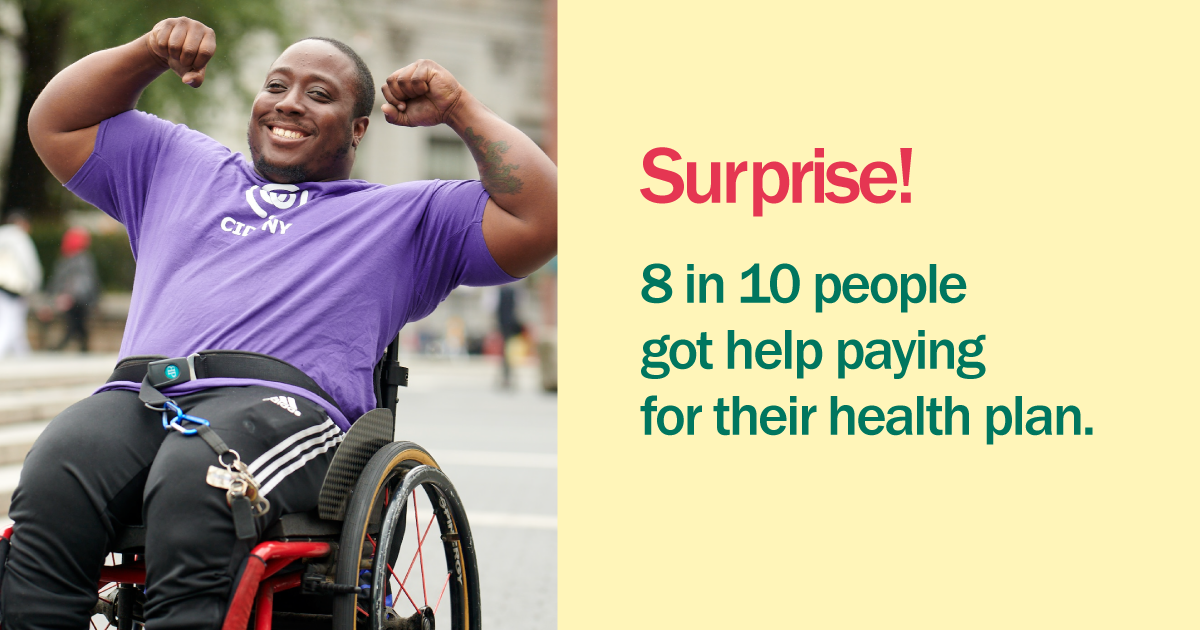FAMILY GLITCH FIXED
This week, the Biden Administration released final rules on a fix for the so-called “family glitch.” The family glitch was a situation when an individual had an offer of employer-based coverage that would not cover the rest of his or her family. If that occurred, the entire family was precluded from receiving premium tax credits through the Affordable Care Act marketplaces. These new rules will change how affordability is determined for these families making many more of them now eligible for premium tax credits. These new rules come just in time for the start of Open Enrollment Year 10 (OE10) which begins in less than a month! Below are some links to the final rules as well statements from the White House and HHS:
To learn more about the new rules, you can also check out the Health Affairs blog post.
As part of our partnership with Community Catalyst, we have a project which highlights opportunities for people with disabilities to get access to health coverage through Medicaid or the ACA marketplace. As part of this project, they have graphics like the one below which highlight the affordability of coverage through the ACA marketplace. These graphics are available in the Community Catalyst Outreach Hub.
The Center on Budget and Policy Priorities (CBPP) is running their fall Beyond the Basics webinar series which provides training for assisters to prepare. Last week they conducted webinars on resolving data matching issues and the renewal process. This week they conducted a webinar on “tying it all together”. For a complete list of the dates and times for the entire webinar series, check out our news item which also has links for the slides and video recording of webinars which have been archived.
This week in the Georgetown University Center for Children and Families “Unwinding Wednesdays” blog post, they examine different messages which advocates are using to reach those at risk for losing their coverage.
The Mental Health Parity and Addiction Equity Act (MHPAEA) requires health insurance plans to cover mental health treatment in the same way that treatment is provided for physical health. The Georgetown University Center on Health Insurance Reforms (CHIR) just released a new issue brief which examines how states have been enforcing the MHPAEA especially given the growing need for mental health treatment during the pandemic.
If you missed it last week, the CHIR released a blog post entitled “What’s New for 2023 Marketplace Enrollment?” This post addresses issues including the extension of the enhanced premium tax credits, fixes for the family “glitch”, and new enrollment opportunities for low income individuals and their families.
The Georgetown CHIR also has a helpful navigator resource guide which provides a lot of helpful content for health insurance navigators and other enrollment assisters as they get ready to assist consumers during OE10.
The HHS Office for Civil Rights released proposed rules in August which would affect enforcement of ACA §1557 which makes discrimination illegal in healthcare settings as it relates to several minority groups, including the disability community. Last week, we highlighted several comment letters which AAHD joined. To read more or for links to these letters, check out our news item.
Young Invincibles has announced a series of webinars which they will be conducting throughout this month. These webinars are designed to help new health insurance navigators and enrollment assisters get ready for the upcoming OE10 and while they are specifically intended to provide guidance for those who are new to enrollment work, anyone who does enrollment work is welcome to attend. The topics, dates and links to register for these webinars can be found in our news item.
Archives of our weekly updates are available on the NDNRC website.

